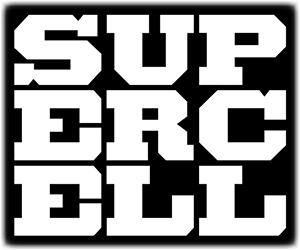
About the Supercell
Source: Our story
THE BEST PEOPLE MAKE THE BEST GAMES
Supercell is a mobile game developer based in Helsinki, Finland, with offices in San Francisco, Tokyo, Seoul and Beijing. Its games are available for tablets and smartphones using both Apple’s iOS and Google’s Android operating systems. Since its founding in 2010, Supercell has brought three games to the market – Clash of Clans, Hay Day and Boom Beach.
Company Story
In the summer of 2010, Supercell was born. Back then, the founders had no idea what the company would become. They just knew they wanted to make great games that people would play for years. To do so, they would create a new kind of gaming company.
Supercell was founded on a few core beliefs.
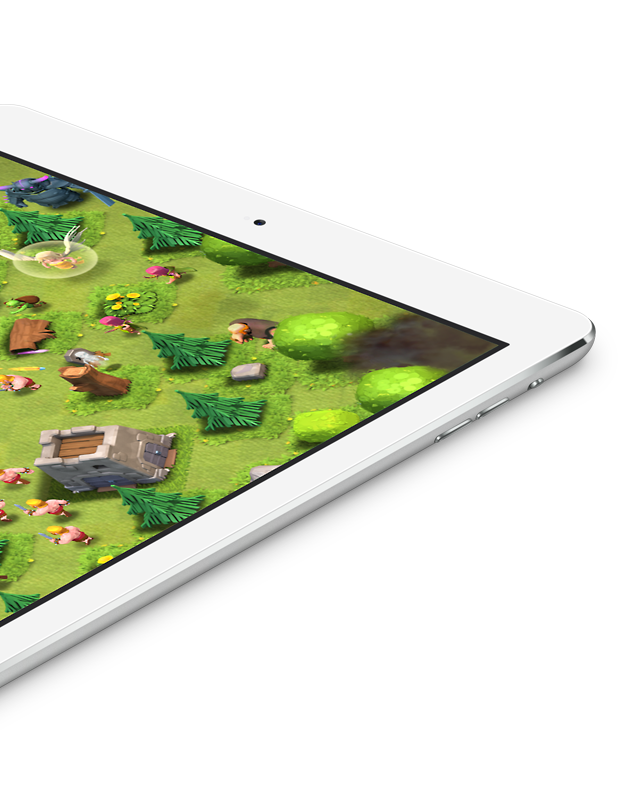
The Best People Make The Best Games.
We used this simple sentence to describe our idea of a new kind of games company that would put people front and center. We thought to ourselves: “What if you put together a games company the way you’d put together a professional sports team?” In that type of model, the sole mission of the founders and management would be to acquire the best talent FOR EVERY SINGLE POSITION, create the best possible environment for them, and then get out of the way. It would be an environment with zero bureaucracy. A place where the best people could make the biggest possible impact and nothing would stand in their way. Everything else, including financial goals, would be secondary.
Small and independent cells.
We’ve found that the best quality work comes from small teams in which every single member is passionate about what they do. Often times when teams become bigger, processes, bureaucracy and even politics emerge, and the work just isn’t fun anymore. That’s why we wanted to create an organizational model made up of very small teams, or “cells” as we call them. Supercell is a collection of these cells. Each game comes from a cell, and they all operate extremely independently and have complete control over their own roadmap. Our organizational model is optimized for speed and passion, not for control.
Games that people will play for years.
Many of us had been big fans of games like World of Warcraft, which most people play for years, not just weeks or months. Our dream was to create game services with longevity like that. And we wanted to create them for the widest group of people possible. They would be games that almost everyone could get into. The two core pillars around which we wanted to build this longevity would be game play and social. We believed in the power of simple, fun game play. Many of us even longed for the golden days of PC gaming when games were all about great game play. And when it comes to social, we just thought games would be more fun when played with friends and other people.
| 2010 | SUPERCELL FOUNDED | An important part of our original product vision was also the idea of building cross platform gaming services – games that you could log into and play from any device. But later on, our thinking on this changed completely. If you continue reading, you’ll see why. In short, today we believe that the best quality can only be achieved by focusing on one platform at a time.
That’s what we were thinking when we got started back in May 2010. Our initial funding came from the founders investing their savings into the company. On top of that, we borrowed as much money as we could from Tekes, the Finnish government’s technology funding arm. |
| FIRST OFFICE IN NIITTYKUMPU, ESPOO |
Our first office was in Niittykumpu in Espoo, Finland. It was pretty far from Silicon Valley, but we had everything we needed: one 30-square-meter room, six desks we got from a recycling center, and of course a coffee maker. A bit later on, when we started to hire more people, we managed to fit 15 people to that little room. At some point there was no room for our CEO Ilkka anymore, so he had to move out. |
2010 Ilkka sitting at his cardboard desk at the Espoo office
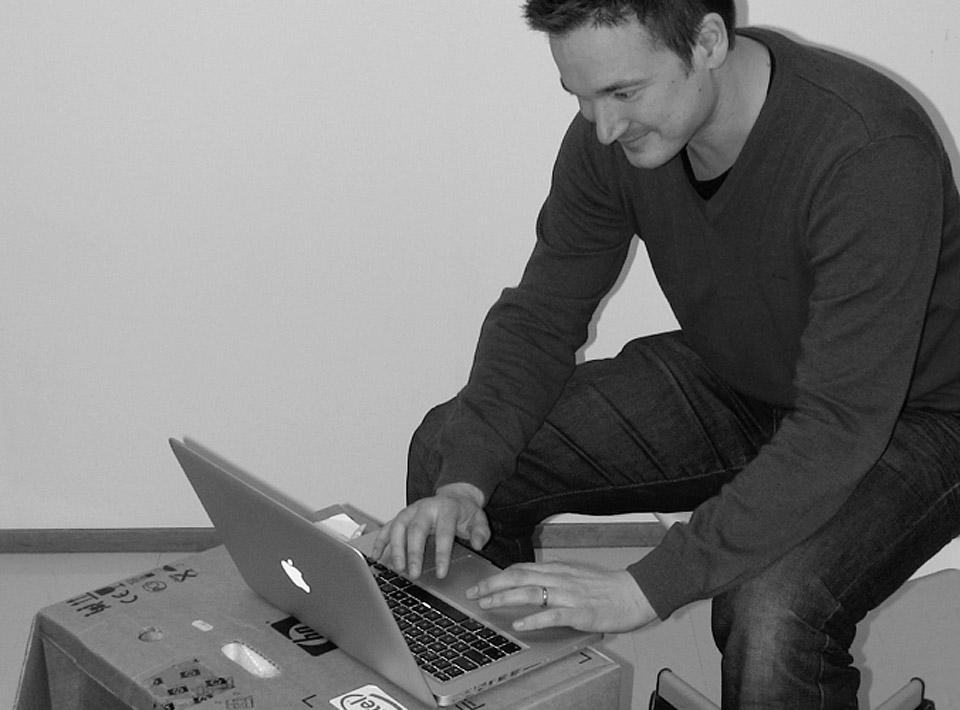
2010 The first office: 30m2, six tables and a coffee maker
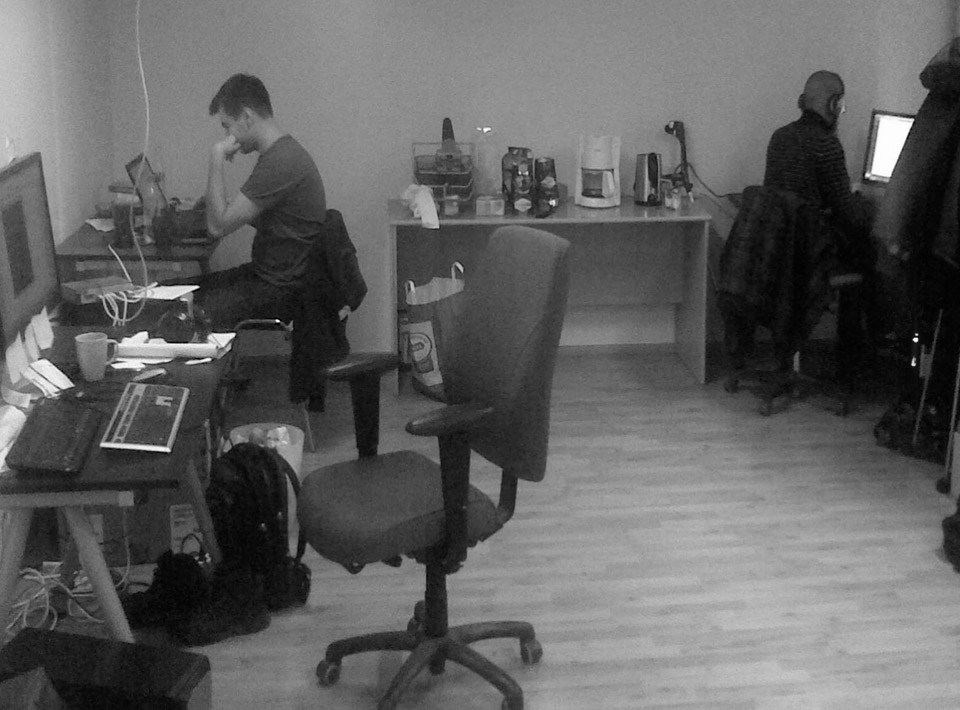
2010 Later on there were 15 people in that same little room
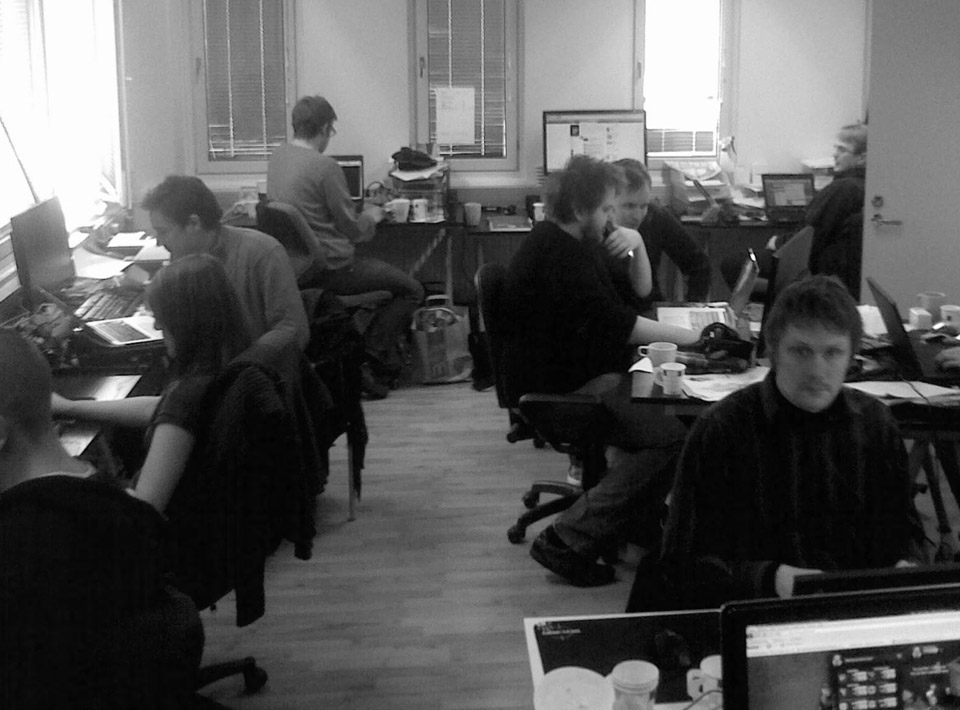
| Our first game was called Gunshine.net. It was a real-time massively multiplayer online role-playing game. Remember, our original vision was to create cross-platform gaming services, so the idea was that one day players would be able to enter the world of Gunshine via desktop web, Facebook, tablet and mobile. That said, we had to start from somewhere, and the most logical place was the platform with the widest reach. And at that time, that platform was desktop web and Facebook, so we started to build the game on top of Flash technology.
We managed to launch the private beta version of Gunshine in February 2011, and the open beta launched a few months later. We also started to plan a mobile/tablet version of the game. At its peak in the summer of 2011, Gunshine had around half a million monthly players. |
2011 | GUNSHINE BETA |
| Unfortunately, we slowly started to realize that Gunshine just wasn’t delivering on our original product vision. There were three reasons why.
Most importantly, despite their initial excitement, players were getting bored with the game after a month or two. The sad truth was that this was not a game that anyone would play for years. |
NEW STRATEGY: TABLET / MOBILE | |
| It was too hard to get into the game if you hadn’t played similar types of games before. This game would never become a mass-market phenomenon, a game that would have an impact on the lives of millions of people.
Once we started to plan the mobile version, it quickly became clear thatGunshine would never be a great experience on mobile. It was too hard to try to replicate the mouse/keyboard experience on touch screens. Also, we realized people play differently on desktop than they do on mobile. Mobile games have to be fun even if you only have a few minutes to play. Gunshine wasn’t. |
KILL GUNSHINE | |
| So, despite all our hard work, we realized Gunshine.net was never going to be the game we had dreamed of. It also became clear that the problem wasn’t just with Gunshine. We had a big problem with our product strategy, too.
Because we’d already started planning the mobile version of Gunshine, we ordered a few iPads for the office. One day we noticed that we’d all fallen in love with this device. We started to call it “the ultimate games platform”. And we started to realize just how different this platform truly was. It became clear that if we really wanted to create the best possible games for this platform we could focus on nothing else. To make matters even more complicated, we had already begun developing the next wave of games, which were still aligned with our original cross-platform strategy. |
KILL MAGIC | |
| The time had come to make some hard decisions. We decided to kill all ongoing productions for web and Facebook and bet the entire company on a strategy that we started to call “tablet first”. We would start by perfecting the game for iPad. We would modify it later for smartphones. Since then, we’ve shifted our strategy to “mobile first” as smartphones have grown and it’s become increasingly difficult to distinguish them from tablets. Today it’s clear that this was the right decision, but in the fall of 2011 it was less obvious.
Probably the hardest decision at the time was killing a game with the codename “Magic”. We had a passionate five-member team working on that game day and night for nearly six months straight, and we were all really excited about it. It looked amazing, and it was a game that had never been seen before on Facebook. But in the end we killed it and started to work on something new for tablets. What makes this story a classic is that it was the “Magic” team that ultimately developed Clash of Clans, which was also codenamed “Magic” before getting its official name. |
PETS VS. ORCS BETA |
2011 Gunshine screenshot
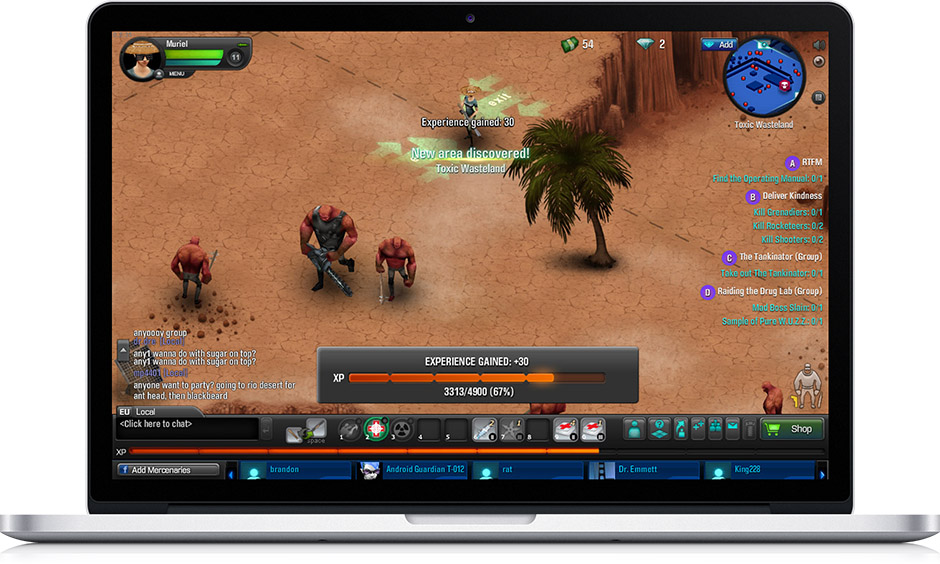
2012 Veli and Timur launching Hay Day
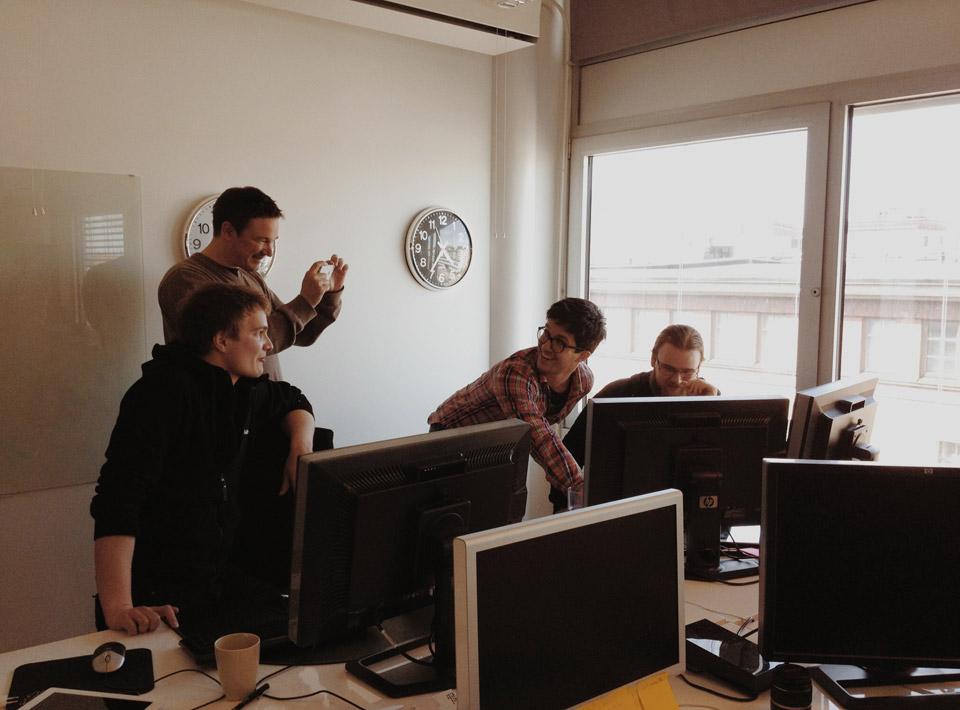
| 2012 | OPENING OF US OFFICE | By early 2012 we had five small teams working on new games, all for tablets and mobile. We knew that one of those games would have to be at least moderately successful for the company to have a future. |
| KILL PETS VS. ORCS | We’d learned a lot since Gunshine failed, and one of the most important lessons was this: It’s usually better to kill games earlier rather than later. If it starts to feel like the game isn’t going to work or isn’t fun enough, it’s usually a sign that you should have already killed it. In keeping with this thinking, we killed our first mobile game, Pets vs. Orcs, back in February. And we killed a game codenamed “Tower” later in the spring. | |
| KILL TOWER | The next game to go was a farming game codenamed “Soil”, which would later be named Hay Day. Our goal was to develop a next generation farming game, specifically designed for touch and mobile from the ground up. There were two things we really wanted to focus on. The first was user interface; we wanted to the most of swipe and other controls specific to touch. The second was social, which lead us to design a real-time trading mechanism where players could buy and sell ingredients amongst themselves. | |
| HAY DAY BETA | The Hay Day beta went live in Canada in May 2012. Until this point, every single beta launch we’d had as a company had been lukewarm at best and had eventually led us to kill the game later on. A few of them had garnered some initial interest, but player engagement soon started to wane. But Hay Day was different. The engagement was crazy from day one, and it just kept growing. Slowly we started to realize that perhaps, finally, we were onto something. | |
| CLASH OF CLANS BETA | The game launched globally on June 21st. Everyone who worked at Supercell at that time will definitely remember this exact date because it happened to be Midsummer’s Eve, one of the biggest public celebrations in Finland. We had almost no player support at that time, simply because we never even imagined we’d have that kind of success. So practically everyone who worked at Supercell was online at their summer cottages answering player support tickets while enjoying the beautiful Midsummer celebrations. After that, we decided to stay away from launching major games on Midsummer’s Eve or other national holidays  |
|
| HAY DAY LAUNCH | Just before the start of summer vacations in Finland in July we released another new game to beta in Canada. Its codename was “Magic”, but today it’s called Clash of Clans. Many of us were fans of real-time strategy games and had played them online and on other platforms. With Magic, our original goal was make this type of game play accessible to the widest possible audience. And we wanted to use some of the unique characteristics of the touch interface to create a very special gaming experience on tablets. We also wanted to make the game as social as possible. | |
| KILL BATTLE BUDDIES | Clash of Clans launched globally in August 2012. People often ask us if there was a specific moment when we realized we had two hits on our hands. The truth is there wasn’t. Both Clash and Hay Day have grown steadily from day one. It took Clash 3 months from launch to become the #1 top grossing game in the U.S. | |
| CLASH OF CLANS LAUNCH | The fifth game we’d been working on was called “Battle Buddies”, a player vs. player tactical shooting game inspired by games such as UFO: Enemy Unknown. Unfortunately, the game never garnered enough player interest to move out of beta, so we had to kill it too. |
2012 Battle Buddies was one of the games that got axed
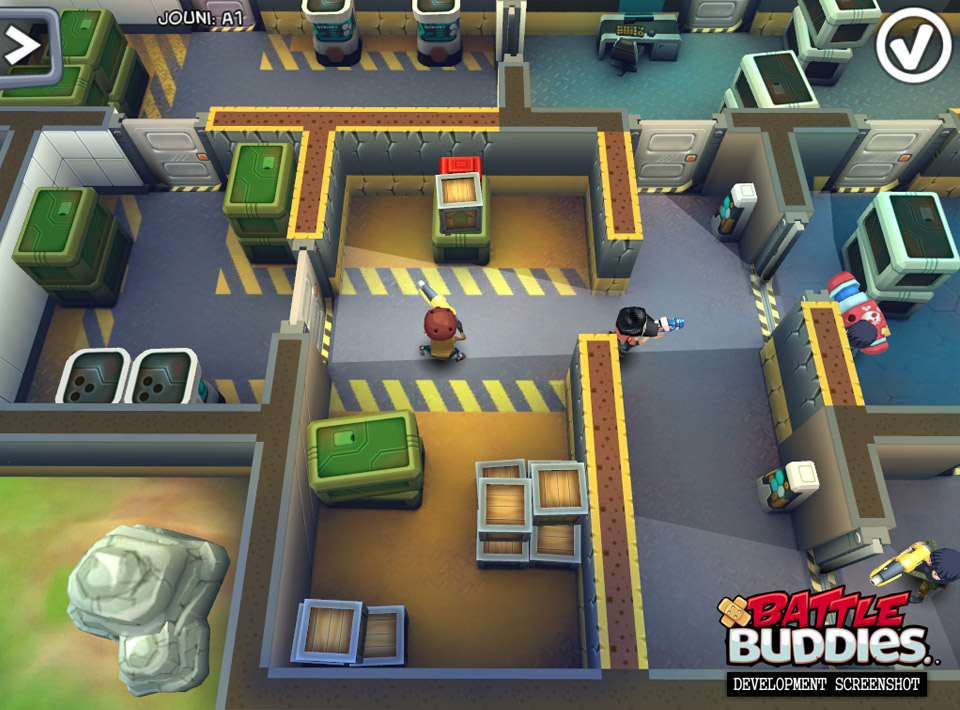
| Since these early days, we’ve killed countless games at various stages of development. Usually they get killed after a milestone we call a “company playable”, which means that the team releases the game for everyone in the company to play. In addition to Clash and Hay Day, the only other game that has managed to proceed to beta and launch globally is Boom Beach. It really never ceases to amaze us how incredibly difficult it is to design new games. You would think it would get easier over time, especially when you’ve been lucky enough to put out hits like Hay Day, Clash and Boom Beach. But to be totally honest, it isn’t any easier today than it was when we were just getting started. | 2013 | MOVE TO NEW OFFICES
TOKYO OFFICE |
| We’d like to think that every failure is a unique opportunity to learn, and every lesson will ultimately make us better at what we do. That’s why we have a tradition of celebrating these lessons by drinking champagne every time we screw up. For us, it’s clear that releasing hit games means having to take risks. And by definition, taking risks means that you’ll fail more often than you’ll succeed. So whenever we realize that we haven’t failed in a while, it’s a sign that we haven’t taken enough risks. And that is truly the biggest possible risk for a creative company like ours. | SEOUL OFFICE | |
| Of course, taking risks isn’t only limited to creating games. We have some very ambitious ideas about how games can be marketed to the global populations of more than a billion gamers on mobile today. We want to find exciting new ways to tell everyone on the planet about our games. At some point we realized that for the first time in the history of gaming it’s now possible to create a truly global games company. A company that not only has hit games in western markets but also in the big eastern markets like Japan, Korea and China. To this end, we’ve opened offices in Tokyo and Seoul, and we’ve been pleasantly surprised at how warmly our games have been received there. | BOOM BEACH BETA |
2013 Champagne celebration at the office
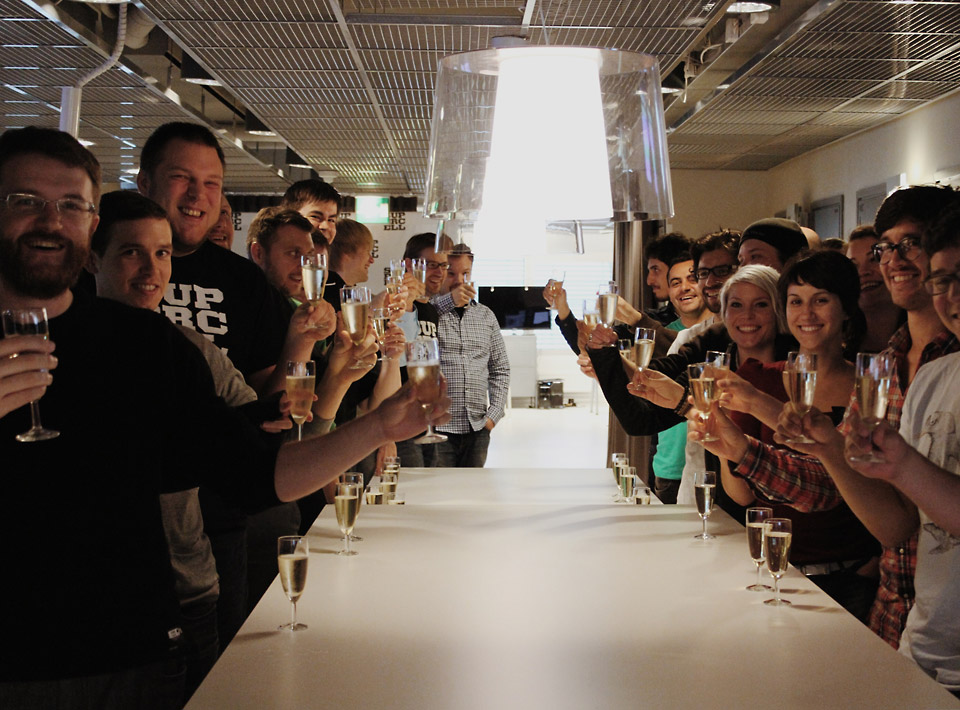
| 2014 | CLAN WARS UPDATE | Many things have changed at Supercell along the way. But the core beliefs upon which we founded the company are stronger than ever. We still believe in the power of extremely small and independent teams of passionate people. We fundamentally believe in the power of “small”. Being small means you need less management and fewer processes, both of which just make it more fun to work. As such, our explicit goal is to keep the company as small as possible. At the time of writing, there are only 150 of us working in our offices in Helsinki, San Francisco, Tokyo and Seoul. What’s cool though is that these people come from 32 different countries, which makes the environment truly multicultural and global. |
| BOOM BEACH LAUNCH | We didn’t create this company to make money. But the fact is we’ve been lucky enough that our financial success has given us a unique opportunity to think very long term, be very patient, take big risks and do things that most people haven’t done before. To us, it still feels like very early days, both for Supercell as a company and mobile gaming as an industry. Our dream is to create games that people will remember and hopefully even play for decades. And we want to build a company that will last for decades. A company whose employees will think it’s the best place they’ve ever worked. And, finally, a company that not only does good for its players, employees and shareholders, but also for the greater community around it. We’ve been so incredibly fortunate, and that’s allowed us to help others around us. | |
| HAY DAY TOWN UPDATE | More than anything, what all of the above requires is time and patience. In keeping with this thinking, in October 2013 we decided to form a partnership with SoftBank, which became our single biggest shareholder with a 51% stake in the company. In SoftBank we found a partner whose focus isn’t on the next ten years but next hundred years. It is a perfect partner given our long-term goals. A partner with whom history can be made. | |
| SPOOKY POP BETA | It’s been exciting beginning for the company. But the reality is that this is just the beginning. There is so much more we can do. We can make our existing games much better. We can make new games that will change how people think about mobile gaming and games in general. And more than anything, we can create different kind of a company – the company we’ve always dreamed of. |
The Supercell Staff (Hover to Zoom)
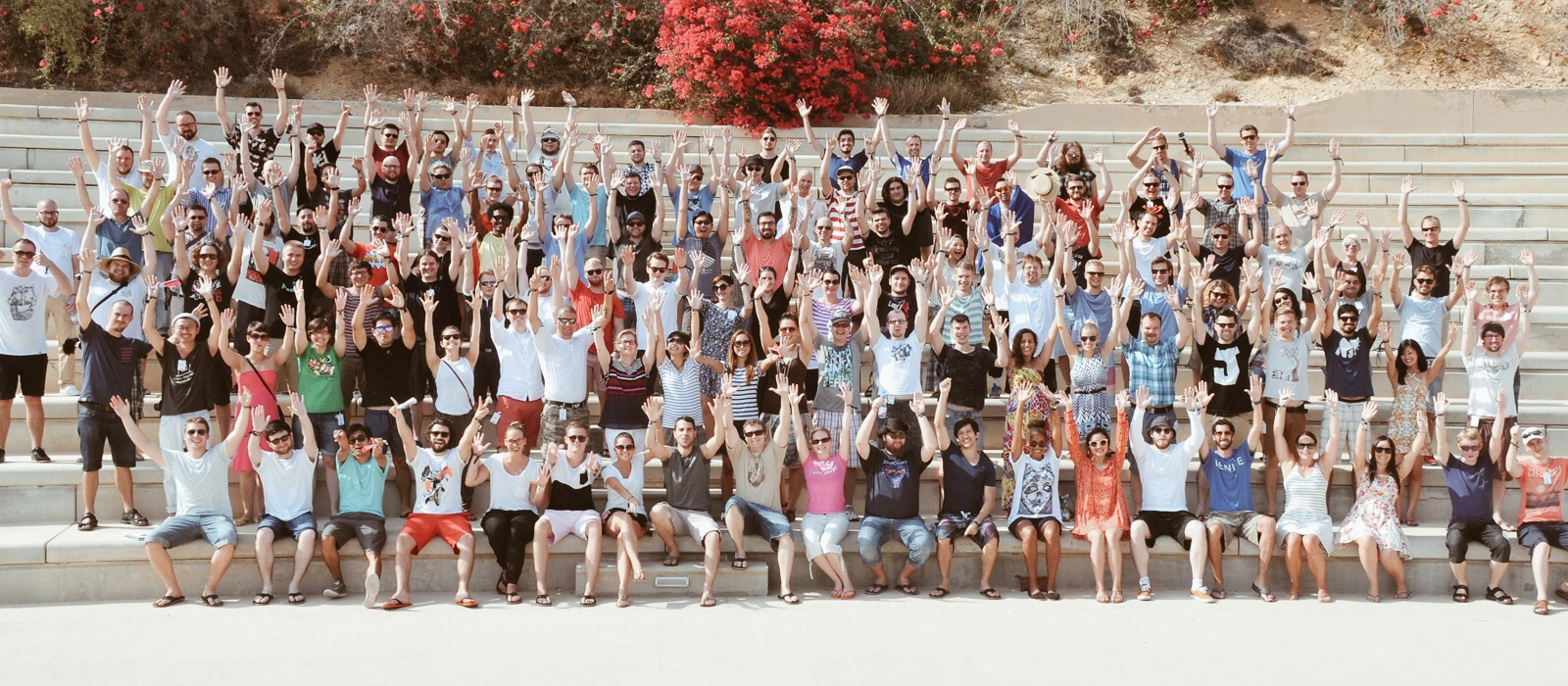
. . .

Leave a Reply